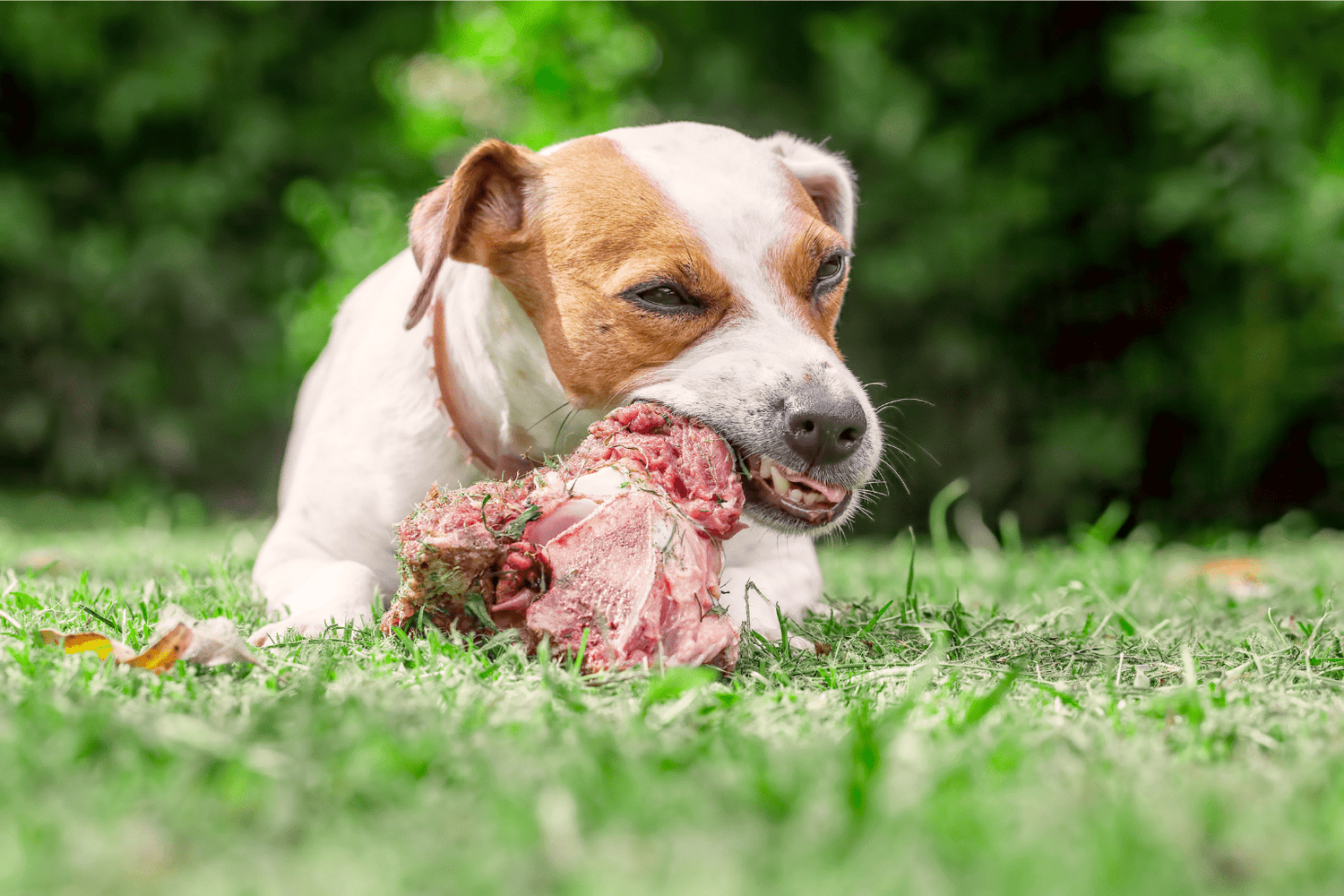Key Takeaways
- High-quality animal proteins such as chicken, beef, and fish are beneficial for most dogs.
- The best protein choice depends on your dog's age, activity level, allergies, and health goals.
- It is important to rotate protein sources to prevent sensitivities.
- Choose natural and responsibly sourced protein options for your dog.
- This information is not a substitute for professional veterinary advice.
Table of Contents
- Why Protein Matters for Your Dog's Health
- Protein 101 – Breaking Down the Basics
- Comparing Common Protein Sources for Dogs
- How to Choose the Best Protein for YOUR Dog
- Special Cases, Best Protein Choices for Dogs with Unique Needs
- Animal vs. Plant Protein, Does It Matter for Dogs?
- Navigating Commercial Protein Options
- Safe Ways to Add Protein at Home
- Protein Problems, Signs of Trouble & How to Fix Them
- Myths & Misinformation, Truths Every Pet Parent Deserves
What Is the Best Protein for Dogs?
Most dogs thrive on high-quality animal proteins like chicken, beef, or fish, but the 'best' protein depends on your pet's age, activity, allergies, and health goals. Rotate proteins, watch for sensitivities, and choose natural, responsibly sourced options. Not a substitute for professional veterinary advice.
When I first brought Tango home, I thought protein was protein. One emergency vet visit later, after his tummy rebelled against a cheap kibble, I learned that what is the best protein for dogs isn't a one-size-fits-all answer. It's about finding what makes your pup's tail wag and their body thrive.
The truth? Your dog's perfect protein depends on their unique needs, sensitivities, and life stage. If your dog struggles with allergies or immune sensitivities, targeted support can make all the difference. Let's dig into what really matters for your four-legged family member.
Most dogs will benefit from a diet that supports healthy digestion and nutrient absorption. Gentle digestive support can help your pup adjust to new proteins and maintain optimal gut health.
Why Protein Matters for Your Dog's Health
Protein isn't just about building muscle, it's the foundation of your dog's entire well-being. Every cell, from their shiny coat to their immune system, relies on quality protein to function properly.
Here's what protein does for your pup: It builds and repairs muscle tissue, supports immune function, creates enzymes for digestion, and maintains healthy skin and coat. Think of it as the construction crew that keeps your dog's body running smoothly.
Most adult dogs need about 18-25% protein in their diet, while puppies require 22-32% to support their rapid growth. Senior dogs often benefit from higher protein (around 28%) to maintain muscle mass as they age, contrary to old myths about reducing protein for older pets.
Protein 101 – Breaking Down the Basics

Protein is made up of amino acids, imagine them as building blocks your dog's body uses to construct everything from antibodies to enzymes. Dogs need 10 essential amino acids that their bodies can't make on their own.
Animal vs. plant protein: Animal proteins are "complete," containing all essential amino acids in the right proportions. Plant proteins often lack one or more essential amino acids, making them less ideal as primary protein sources for dogs.
| Essential Amino Acid | Key Function | Found in Animal Protein |
|---|---|---|
| Lysine | Muscle development, calcium absorption | ✓ High levels |
| Methionine | Coat health, liver function | ✓ Abundant |
| Tryptophan | Mood regulation, sleep | ✓ Present |
| Arginine | Immune system, wound healing | ✓ High bioavailability |
Digestibility matters most. A protein might look perfect on paper, but if your dog can't absorb it efficiently, it's not doing much good. Animal proteins typically offer 85-95% digestibility, while many plant proteins hover around 60-80%.
Comparing Common Protein Sources for Dogs
Chicken - The Crowd Pleaser
Best for: Most dogs, especially those new to protein rotation
Chicken offers excellent digestibility and balanced amino acids at an affordable price. It's lean, widely available, and most dogs find it irresistible. However, it's also the most common allergen simply because dogs are exposed to it frequently.
Beef - The Powerhouse
Best for: Active dogs and muscle maintenance
Rich in iron, zinc, and B-vitamins, beef provides robust nutrition for working dogs. It's higher in fat than chicken, making it ideal for high-energy pups. Luna, a German Shepherd in our community, transformed from lethargic to trail-ready after switching to a beef-based diet.
Fish - The Brain Booster
Best for: Skin conditions, cognitive health, senior dogs
Salmon and other fish provide omega-3 fatty acids alongside high-quality protein. These support brain function, reduce inflammation, and promote a glossy coat. Fish is also highly digestible, making it perfect for sensitive stomachs.
Lamb - The Gentle Giant
Best for: Dogs with chicken or beef sensitivities
Lamb is less commonly used in commercial foods, making it a good "novel" protein for elimination diets. It's rich in essential fatty acids and tends to be well-tolerated by sensitive dogs.
Rabbit & Venison - The Specialists
Best for: Severe food allergies, elimination diets
These truly novel proteins are rarely found in commercial foods, making them excellent choices for dogs with multiple food sensitivities. They're lean, highly digestible, and often the last resort that becomes the perfect solution.
| Protein Source | Best For | Key Benefits | Considerations | Typical Cost |
|---|---|---|---|---|
| Chicken | Most dogs, beginners | High digestibility, affordable, complete amino profile | Common allergen due to overexposure | Budget-friendly |
| Beef | Active dogs, muscle building | Rich in iron/zinc, high energy, robust nutrition | Higher fat content, potential allergen | Moderate |
| Fish (Salmon) | Seniors, skin issues, brain health | Omega-3s, anti-inflammatory, highly digestible | Can be expensive, strong odor | Premium |
| Lamb | Chicken/beef sensitivities | Novel protein, essential fatty acids, gentle | Limited availability, higher cost | Moderate-high |
| Duck | Food allergies, variety seekers | Rich flavor, novel option, good fat content | Higher calories, specialty item | Premium |
| Rabbit/Venison | Severe allergies, elimination diets | True novel proteins, lean, hypoallergenic | Very limited availability, expensive | Highest |
How to Choose the Best Protein for YOUR Dog
Start with your dog's life stage and activity level. Puppies need easily digestible proteins like chicken or fish to fuel rapid growth. Active adult dogs thrive on beef or duck for sustained energy. Senior dogs benefit from fish-based proteins that support joint health and cognitive function.
Watch for sensitivity signals. Chronic ear infections, itchy skin, or digestive upset often point to protein intolerance. Keep a simple food diary when introducing new proteins, note energy levels, coat condition, and bathroom habits over 10-14 days.
Practice protein rotation safely. Switch proteins every 2-3 months to prevent sensitivities from developing. Introduce new proteins gradually, mixing 25% new with 75% current food for the first week, then increasing the ratio daily.
Pro Tip: For dogs with multiple sensitivities, start with a single novel protein like rabbit or duck. Once their system stabilizes, you can slowly introduce variety. Our community member Sarah found success with this approach when her rescue pup Max couldn't tolerate any commercial foods.
Consider your dog's breed tendencies. Large breeds often do well with beef for muscle maintenance, while smaller dogs may prefer the gentler digestion of fish or chicken. Working breeds need higher protein percentages, while couch potato pups might need leaner options to maintain healthy weight. For more tailored advice, see what dog food is best for small dogs.
Special Cases, Best Protein Choices for Dogs with Unique Needs

Dogs with Food Allergies
True food allergies involve immune system reactions, while intolerances cause digestive upset without immune involvement. Both require careful protein selection. Novel proteins like venison, rabbit, or duck work best because your dog's immune system hasn't encountered them before.
Bailey, a rescue mix in our community, struggled with chronic skin issues until switching to a single duck protein diet. Within two weeks, her scratching decreased and her coat began to shine. Our gentle digestive support remedies helped ease her transition to the new protein.
Senior Dogs Need Strategic Protein
Older dogs require more protein, not less, to combat age-related muscle loss. Fish proteins offer the perfect combination of high digestibility and anti-inflammatory omega-3s. Lean options like cod or salmon support joint health while maintaining muscle mass.
Choose easily digestible proteins to reduce kidney workload while maximizing nutrition absorption. Our senior dog formulas complement protein transitions with natural support for comfort and vitality.
High-Energy Athletes
Working and sporting dogs burn through calories quickly, requiring protein sources with higher fat content. Beef and duck provide sustained energy, while fish offers recovery benefits through omega-3 fatty acids.
Active dogs may need 25-35% protein in their diet, significantly higher than couch companions. Monitor body condition closely, as these dogs can lose weight quickly if their protein needs aren't met. For additional support, weight management supplements can help maintain optimal body condition.
Weight Management Warriors
Overweight dogs benefit from lean proteins like turkey, white fish, or rabbit. These provide essential amino acids without excess calories. Focus on protein quality over quantity, better absorption means less food needed for the same nutritional value.
Animal vs. Plant Protein, Does It Matter for Dogs?
Animal proteins win on completeness and digestibility. Dogs evolved from carnivorous ancestors and their digestive systems are optimized for animal protein. While dogs can digest some plant matter, their short intestinal tract and acidic stomach pH are designed for processing meat efficiently.
Plant proteins like peas, lentils, and soy can supplement animal proteins but shouldn't be the primary source. They often lack essential amino acids like methionine and lysine, requiring careful combining to create complete protein profiles.
The bottom line: Animal proteins provide superior nutrition for dogs, while plant proteins work best as supplements to a meat-based diet. For dogs with specific dietary restrictions, work with your veterinarian to ensure all nutritional needs are met.
Navigating Commercial Protein Options
Reading dog food labels requires detective skills. The first ingredient should be a named animal protein, "chicken," not "poultry meal" or vague "meat by-products." Protein percentages vary dramatically: dry kibble typically contains 18-32% protein, while canned foods range from 8-15% (but remember, canned food is 75% water).
Protein "meals" aren't automatically bad, chicken meal is actually concentrated protein with moisture removed. However, avoid generic terms like "meat meal" that don't specify the source. Fresh meat sounds appealing but contains 70% water, so it may rank high on the ingredient list while contributing less protein than you'd expect.
Freeze-dried and dehydrated options offer protein concentrations similar to raw food but with longer shelf life and easier handling. These formats work especially well for dogs transitioning between diets or those with sensitive stomachs.
When switching protein sources, digestive support can ease the transition. Our gentle homeopathic formulas help many dogs adjust to new foods without the typical stomach upset, making it easier to find their perfect protein match.
Label Reading Tip: Calculate dry matter protein percentage by dividing protein content by (100 - moisture content). This gives you true protein comparison across wet and dry foods.
Safe Ways to Add Protein at Home

Supplementing commercial diets with home-cooked protein can add variety and nutrition, when done correctly. Start small: 1-2 tablespoons for dogs under 25 pounds, up to ¼ cup for larger breeds. Plain, cooked chicken, turkey, or fish work best as introductory proteins.
Cook proteins simply, no oils, seasonings, or marinades that can upset sensitive stomachs. Boiling or baking preserves nutrients while ensuring safety. Never add cooked bones, which can splinter and cause serious internal damage.
Introduce new proteins gradually over 7-10 days, watching for changes in stool consistency, energy levels, or skin condition. Some dogs experience temporary digestive adjustment, which usually resolves within a few days.
For dogs prone to stomach sensitivity during dietary changes, natural digestive support can make all the difference. Our gentle remedies help maintain digestive balance, allowing pets to enjoy protein variety without the worry.
Protein Problems, Signs of Trouble & How to Fix Them
Protein deficiency shows up gradually, dull coat, muscle loss in the hindquarters, slower wound healing, and decreased energy. Active dogs and seniors are most at risk, especially if they're not eating enough or absorbing nutrients properly. For more on recognizing health issues, see what are the signs of liver problems in dogs.
True protein allergies are less common than food intolerances but more serious. Look beyond skin issues, chronic ear infections, persistent diarrhea, and excessive scratching can all signal protein sensitivity. Keep a simple food diary noting what your dog eats and any symptoms that appear 2-24 hours later.
Conversely, too much protein can stress kidneys in dogs with existing kidney disease, though healthy dogs handle protein excess well. Picky eaters often respond better to protein rotation than force-feeding one type, dogs naturally crave variety.
When digestive issues arise during protein transitions, don't give up immediately. Sometimes the gut needs gentle support to adapt. Our natural remedies help many dogs work through temporary digestive sensitivity, revealing their true protein preferences once their system stabilizes. For more scientific insight, read this recent veterinary science article on canine nutrition.
Contact your vet if symptoms persist beyond two weeks or include vomiting, severe diarrhea, or behavioral changes. Blood tests can reveal protein issues that aren't obvious from external symptoms.
Myths & Misinformation, Truths Every Pet Parent Deserves
"More protein always equals better health" ranks as the top protein myth. Dogs need adequate protein, not excessive amounts. Quality and digestibility matter more than hitting maximum percentages, especially for less active or senior dogs. For a deeper dive into natural nutrition, check out what is the best natural dog food.
"Grain-free automatically means superior protein" is marketing, not science. Grains don't compete with protein, they provide different nutrients. Some grain-free foods actually contain higher levels of plant-based protein, which may not be as digestible for dogs.
Frequently Asked Questions
How do I determine the best protein source for my dog's specific age, activity level, and health needs?
Consider your dog's life stage and activity when choosing protein. Puppies and active dogs often need higher protein to support growth and energy, while seniors benefit from protein that helps maintain muscle. Also, factor in any allergies or health conditions by consulting your vet and observing how your dog responds to different proteins.
Why is it important to rotate protein sources in my dog's diet, and how can I do this safely?
Rotating proteins helps prevent sensitivities and keeps your dog's diet balanced. Introduce new proteins gradually over several days, mixing them with the current food to allow your dog's digestion to adjust smoothly. This variety supports overall health and reduces the chance of developing allergies.
What are the differences between animal and plant proteins for dogs, and why are animal proteins generally preferred?
Animal proteins provide all the essential amino acids dogs need in a form that's easier for them to digest and use. Plant proteins often lack some of these key amino acids and can be harder on digestion. That's why high-quality animal proteins like chicken, beef, and fish are usually the best choice for most dogs.
What signs should I look for that indicate my dog might be having a protein sensitivity or allergy?
Watch for symptoms like itching, redness, digestive upset (vomiting or diarrhea), chronic ear infections, or changes in coat condition. If you notice these signs after introducing a new protein, it might signal a sensitivity. Always consult your vet to confirm and adjust your dog's diet safely.



